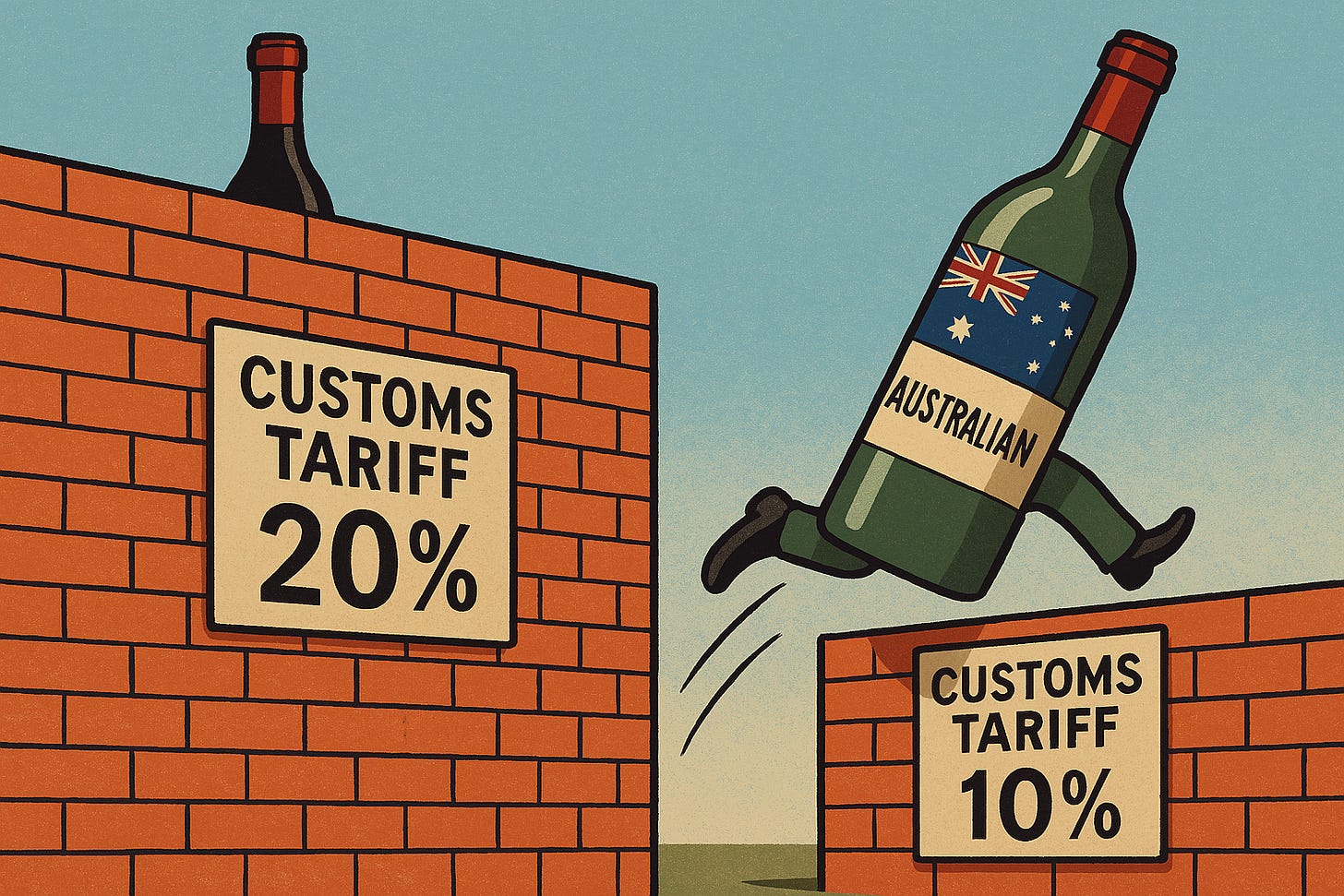There’s no sugar-coating it—Trump’s tariffs are bad policy. But in the wreckage of this protectionist turn there may be some Australians who end up benefiting from them . Not because we’re exempt from the chaos, but because as bad as a 10% tariff is many other countries have it worse.
The wide variation if announced “reciprocal” tariffs has opened the door to considerable trade diversion: when tariffs or subsidies shift trade away from more their low cost producers toward higher-cost alternatives. It’s usually seen as a bad thing—global efficiency takes a hit. But if you’re the country receiving the diverted trade you may end up ahead.
Australia, facing only the standard 10 percent universal tariff on exports to the U.S., now finds itself in a comparatively advantageous position. For exporters from countries hit with far steeper tariffs—like China or the European Union—the playing field is no longer level.
Let’s say an American importer is choosing between the same good from China and from Australia. If Trump’s new tariffs slap an extra 53 percent on Chinese goods, the Australian exporter effectively gets a 43 percent cost advantage—without any change in price or quality.
Of course there aren’t many goods that both China and Australia export at scale. But that is not true of Europe.
Wining the Trade War
In 2023, the United States imported nearly $7 billion worth of wine. Roughly three-quarters of that came from the European Union, primarily France and Italy. Australia’s made up just 4.3 percent.
But now that the EU is facing significantly higher tariffs of 20 percent, potentially higher if the EU and Trump go for another round of Tit for Tat, the economics of U.S. wine imports have shifted and Australian wine producers have a modest cost edge in the American market.
This doesn't mean the sector is suddenly thriving. Treasury Wine Estates, one of Australia’s major exporters, has seen its share price fall sharply in recent weeks. Presumably due to the broader consequences of trade tensions and the possibility of a sharp slowdown in Chinese demand for premium wines.
Still, in a world of increasingly protectionist trade policy, there’s something to be said for being the cleanest dirty shirt in the laundry basket. While many other countries are suffering from rising tariffs, Australia’s position at “just 10%” might shift some market share in its favour.
It’s a marginal benefit, sure—but in global trade, margins matter. Australia could find itself picking up the scraps left by bigger players locked in tit-for-tat economic combat.
Let’s be clear: this is not an argument in favour of Trump’s tariffs. They’re terrible policy—inefficient, politically motivated, and ultimately self-defeating. But in the complicated machinery of global trade, unintended winners do emerge.
Australia may just be one of them, for now.




